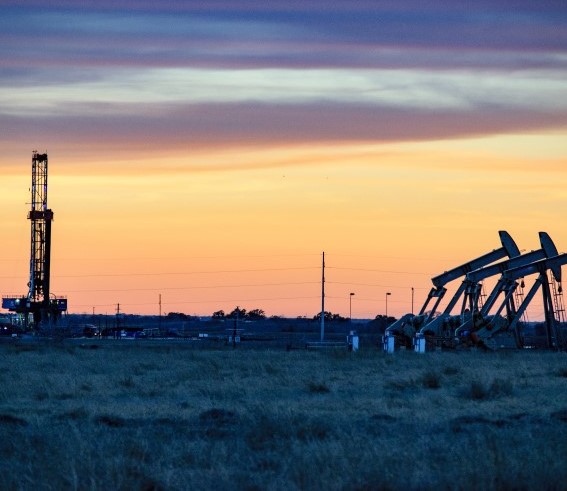CERAWeek: Collapse in US Natural Gas Prices Dents Market for Shale Deals
(Reuters) — This year's freefall in U.S. natural gas prices has upended the acquisitions market for gas producers and spooked investors that lined up to buy when prices were much, much higher.
The price volatility has scuppered plans by a unit of Tokyo Gas Co Ltd. to acquire Rockcliff Energy from private equity firm Quantum Energy Partners, according to three people familiar with the matter.
Reuters reported in January that the parties were close to a $4.6 billion sale of Rockcliff, a producer in the top U.S. shale-gas region. The buyer was to be TG Natural Resources, a business majority owned by the Japanese energy firm, with trader Castleton Commodities International (CCI) holding the rest.
Tokyo Gas wanted to substantially reduce its offer for Rockcliff after U.S. gas futures tumbled: since mid-December, they have fallen by 63% to $2.55 a million British thermal units on Wednesday. Talks ended last month after Rockcliff's backers were unwilling to accept a price cut, said the people, who spoke on condition of anonymity to discuss confidential information.
"There was a minimum price we were willing to take, which was the price originally agreed to with Tokyo Gas," said one of the sources.
Tokyo Gas, Quantum and CCI declined comment. Rockcliff did not respond to a comment request.
Gas prices have been hugely volatile after a long period of stability. The fuel skyrocketed after Russia reduced pipeline shipments to Europe, sending U.S. prices to $9.68 per MMBtu last August. Daily swings also have been aggressive: U.S. futures plunged 15% on Monday.
This year's decline reflects a supply glut caused by a relatively warm winter in the northern hemisphere and less demand due to a lengthy outage at exporter Freeport LNG.
The outlook for gas signals continued weak demand. The price for U.S. gas 12 months in the future is $3.43 per MMBtu, a level restricting new drilling in the U.S.
Hindsight
Last year's bumper prices sparked a wave of dealmaking and hopes for share offers.
EQT Corp. agreed a deal for THQ Appalachia I for $5.2 billion and Marathon Oil Corp. snapped up Ensign Natural Resources for $3 billion. BKV Corp. in November filed for an initial public offering and was expected to seek an up to $2 billion valuation.
With prices falling, however, Chesapeake Energy, Southwestern Energy and Comstock Resources slammed the brakes on new production by cutting drilling rigs.
BKV's IPO plans are on hold as it cannot achieve its desired value at current prices, two sources aware of the matter said.
BKV Corp did not respond to a comment request.
"I think some of those deals were mistimed, and some look expensive in hindsight," said Mark Viviano, a managing partner at investment firm Kimmeridge Energy Management. Viviano was a force behind Chesapeake returning to gas in recent months after a short-lived oil push.
A spate of new liquefied natural gas export plants planned for the U.S. are expected to become big gas consumers over the next five years and underpin higher prices by mid-decade. Hedging strategies set above current market prices will provide some earnings stability for producers in 2023.
But, that leaves this year a "challenging" one for gas deals. The prospect of tailwinds boosting prices should support transaction volumes down the line, said Andrew Dittmar, a director at energy consultancy Enverus.
"There are buyers," he insists, "particularly the bigger companies taking a multi-decade strategy."
Related News
Related News

- Enbridge Plans 86-Mile Pipeline Expansion, Bringing 850 Workers to Northern B.C.
- Intensity, Rainbow Energy to Build 344-Mile Gas Pipeline Across North Dakota
- Energy Transfer to Build $5.3 Billion Permian Gas Pipeline to Supply Southwest
- Enbridge Sees High Demand to Expand 593-Mile Canada-to-U.S. Gulf Oil Pipeline
- Strike Pioneers First-of-Its-Kind Pipe-in-Pipe Installation on Gulf Coast with Enbridge
- A Systematic Approach To Ensuring Pipeline Integrity
- 275-Mile Texas-to-Oklahoma Gas Pipeline Enters Open Season
- LNG Canada Start-Up Fails to Lift Gas Prices Amid Supply Glut
- Strike Pioneers First-of-Its-Kind Pipe-in-Pipe Installation on Gulf Coast with Enbridge
- Enbridge Sees High Demand to Expand 593-Mile Canada-to-U.S. Gulf Oil Pipeline





Comments